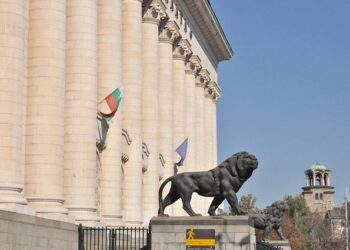Poland’s newly elected president faces mounting pressure from international and domestic watchdogs to prioritize press freedom reforms amid growing concerns over media independence in the country. As the political landscape shifts, advocates urge the incoming administration to uphold democratic principles by safeguarding journalistic rights and reversing measures seen as curbing free expression. This call to action underscores the critical role of a free press in maintaining transparency and accountability in Poland’s evolving democracy.
Polands Press Freedom Challenges Under the New Presidency
Since the inauguration of Poland’s new president, concerns have been mounting over the future of independent journalism in the country. Media watchdogs and international organizations have highlighted ongoing legislative pressures and government-backed narratives that risk eroding pluralism. The new administration faces mounting calls to reverse recent policies that critics say undermine editorial autonomy and restrict investigative reporting. Key issues include the tightening of media ownership laws, increased surveillance, and political influence over public broadcasters.
Experts emphasize that genuine reform requires a multi-faceted approach, urging the government to:
- Ensure legal protections for journalists and whistleblowers
- Promote transparency in state media funding
- Prevent monopolistic control over private news outlets
- Support independent regulatory bodies free from political interference
| Key Challenge | Impact on Press Freedom |
|---|---|
| Ownership Restrictions | Limits plurality of voices |
| Legal Intimidation | Increases self-censorship |
| State Media Control | Promotes biased reporting |
| Surveillance Practices | Threatens journalist safety |
Calls for Comprehensive Media Law Reforms to Safeguard Independence
Amid growing concerns over governmental influence on Polish media outlets, advocates and industry experts are pressing for comprehensive legislative changes that would fortify journalistic autonomy and ensure transparent media ownership. Current laws have been criticized for enabling political interference, which undermines the ability of journalists to report freely and without fear of censorship or retribution. Key demands include:
- Establishing clear, enforceable safeguards to protect editorial independence
- Enhancing transparency regarding media ownership structures
- Implementing stricter regulations to prevent monopolistic control over the press
- Guaranteeing fair allocation of public advertising funds
Stakeholders emphasize that without such reforms, Poland’s democratic fabric risks erosion as the media landscape increasingly reflects political agendas rather than public interest. The push for reform is gaining momentum, especially in the context of the newly elected president’s opportunity to champion press freedom and restore balance in the country’s information ecosystem.
| Current Issue | Proposed Reform | Expected Outcome |
|---|---|---|
| Political influence on broadcasters | Independent media oversight body | Reduced censorship and bias |
| Opaque ownership chains | Mandatory ownership disclosure | Greater public trust |
| Unequal ad revenue distribution | Fair and transparent funding model | Level playing field for media outlets |
International Advocacy Groups Recommend Transparent Regulatory Changes
Leading international bodies advocating for media freedom have issued a strong call for Poland’s new administration to pursue comprehensive reforms that ensure greater transparency and independence within the country’s regulatory framework. These groups emphasize that transparent regulatory measures are essential to safeguarding editorial autonomy, deterring censorship, and promoting an environment where journalists can operate without fear or undue influence. The proposed reforms include establishing clear guidelines for media oversight, enhancing accountability mechanisms, and reinforcing protections against political interference.
Among the key recommendations shared by these organizations, there is a strong consensus on several priorities:
- Independent regulatory bodies: Free from partisan control to fairly administer media laws.
- Public consultations: Open forums involving journalists, publishers, and civil society to shape media policies.
- Clear criteria for licensing: Transparent and objective standards to prevent arbitrary revocation of media licenses.
- Regular reporting: Mandatory public disclosure of regulatory decisions and their rationale.
| Recommendation | Expected Impact |
|---|---|
| Independent Media Council | Reduced political bias in media regulation |
| Transparent Licensing Process | Greater trust and media pluralism |
| Public Accountability Reports | Enhanced oversight and public confidence |
| Stakeholder Engagement Forums | Inclusive policymaking and consensus-building |
Wrapping Up
As Poland’s new president steps into office, the spotlight remains firmly on the pressing issue of press freedom. Advocates and international observers alike emphasize the need for concrete reforms to safeguard independent journalism and uphold democratic principles. The decisions made in the coming months will not only shape the country’s media landscape but also signal Poland’s commitment to fundamental freedoms on the European stage.
















